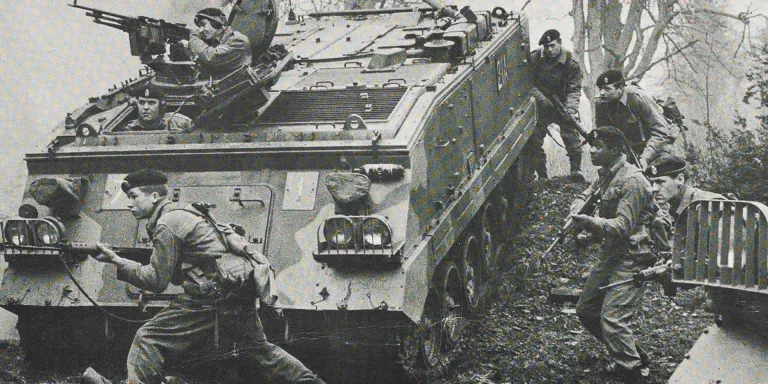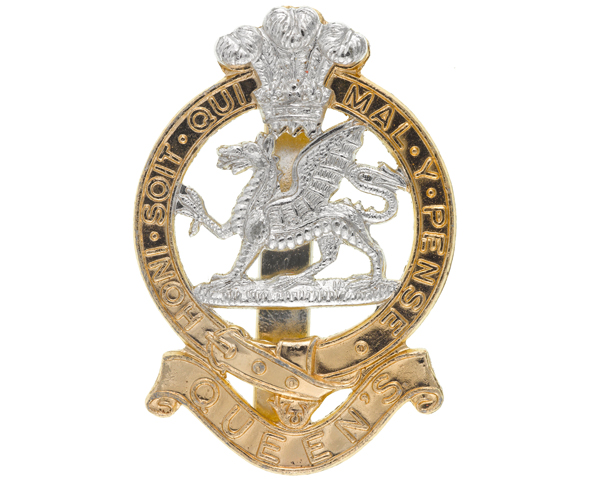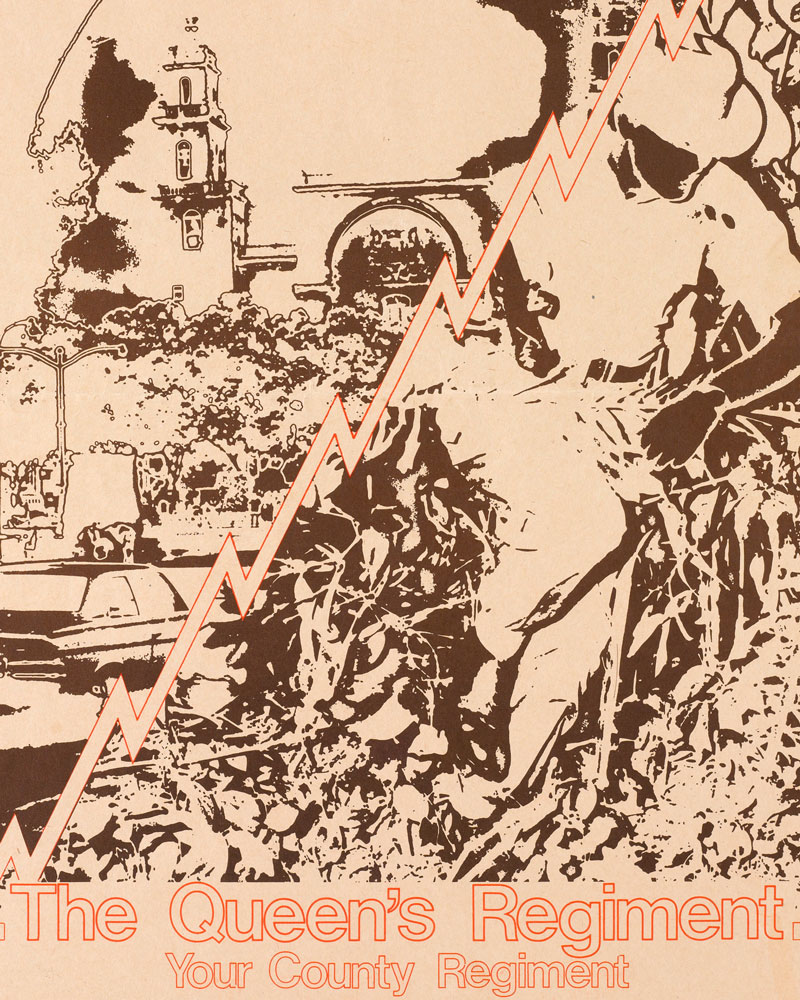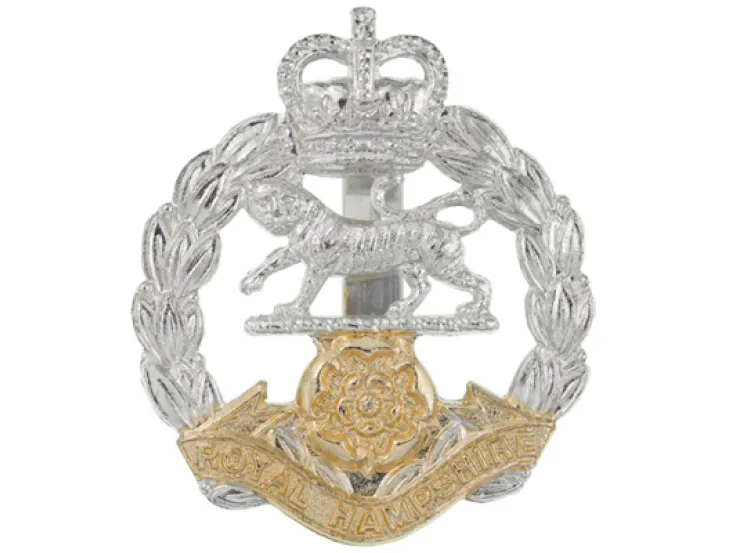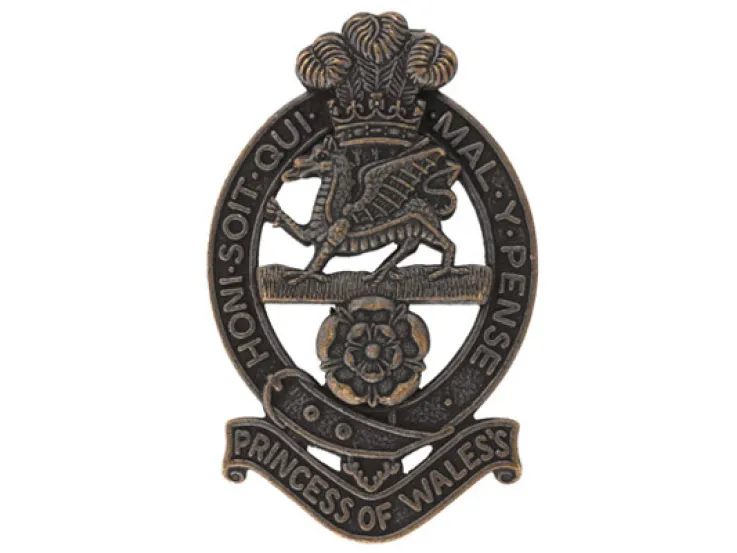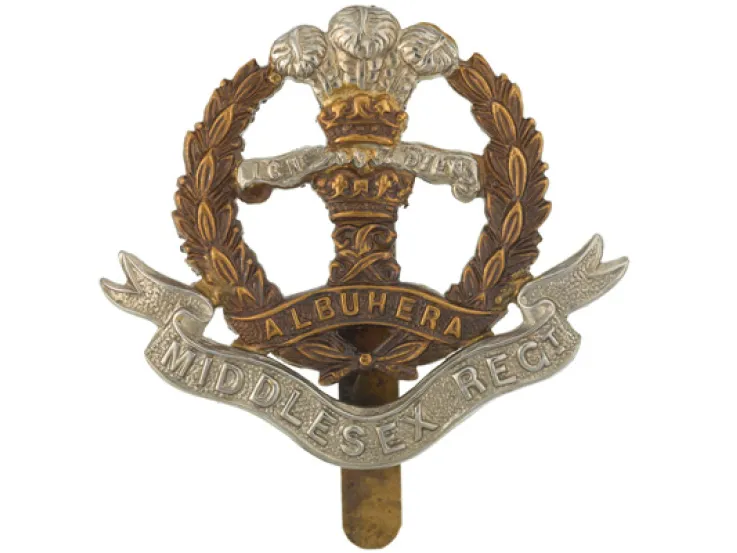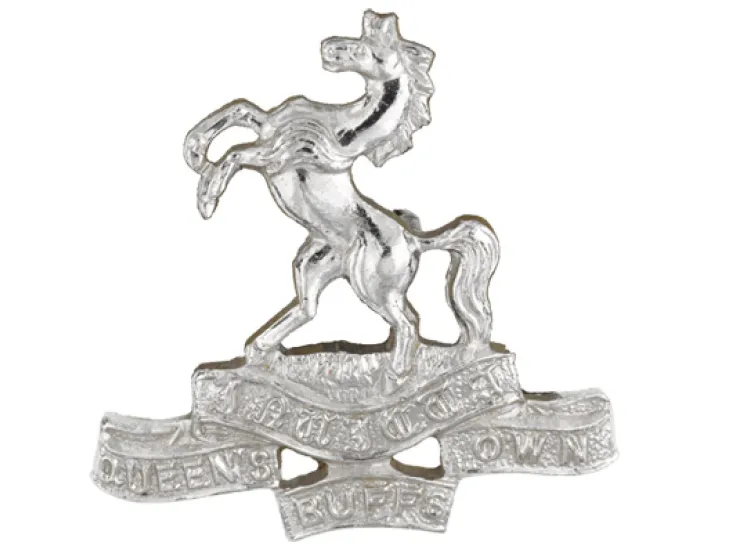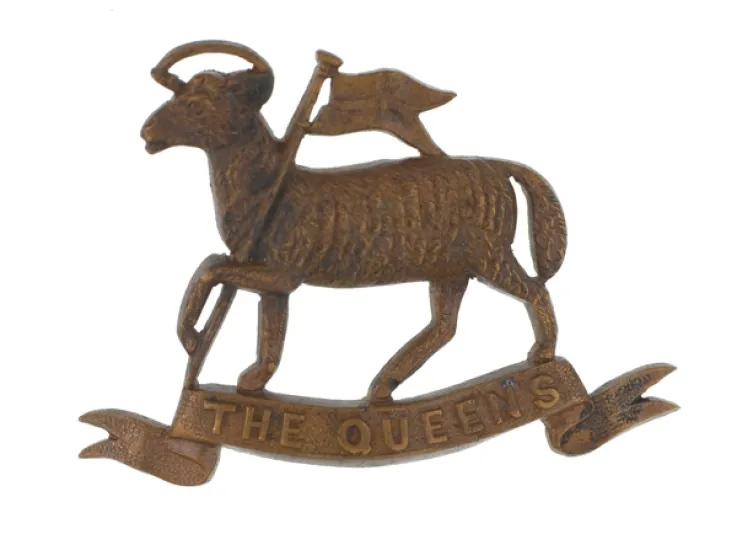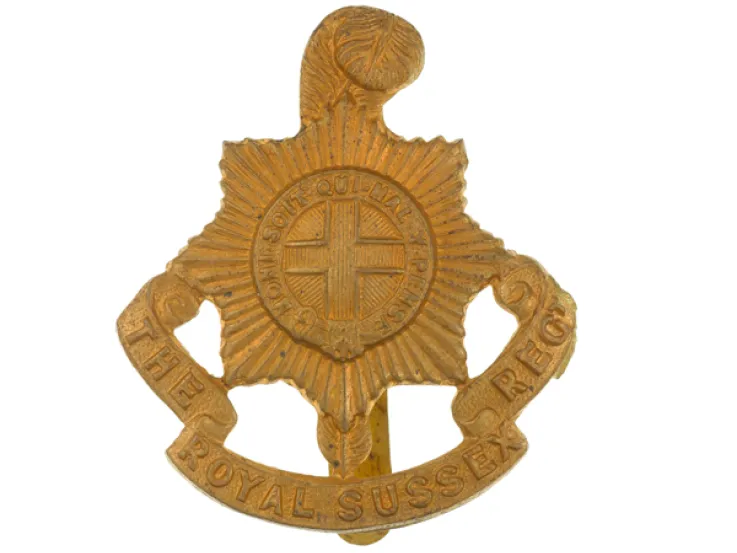Troops of the Queen's Regiment and Royal Regiment of Fusiliers during a Queen's Division exercise, c1970
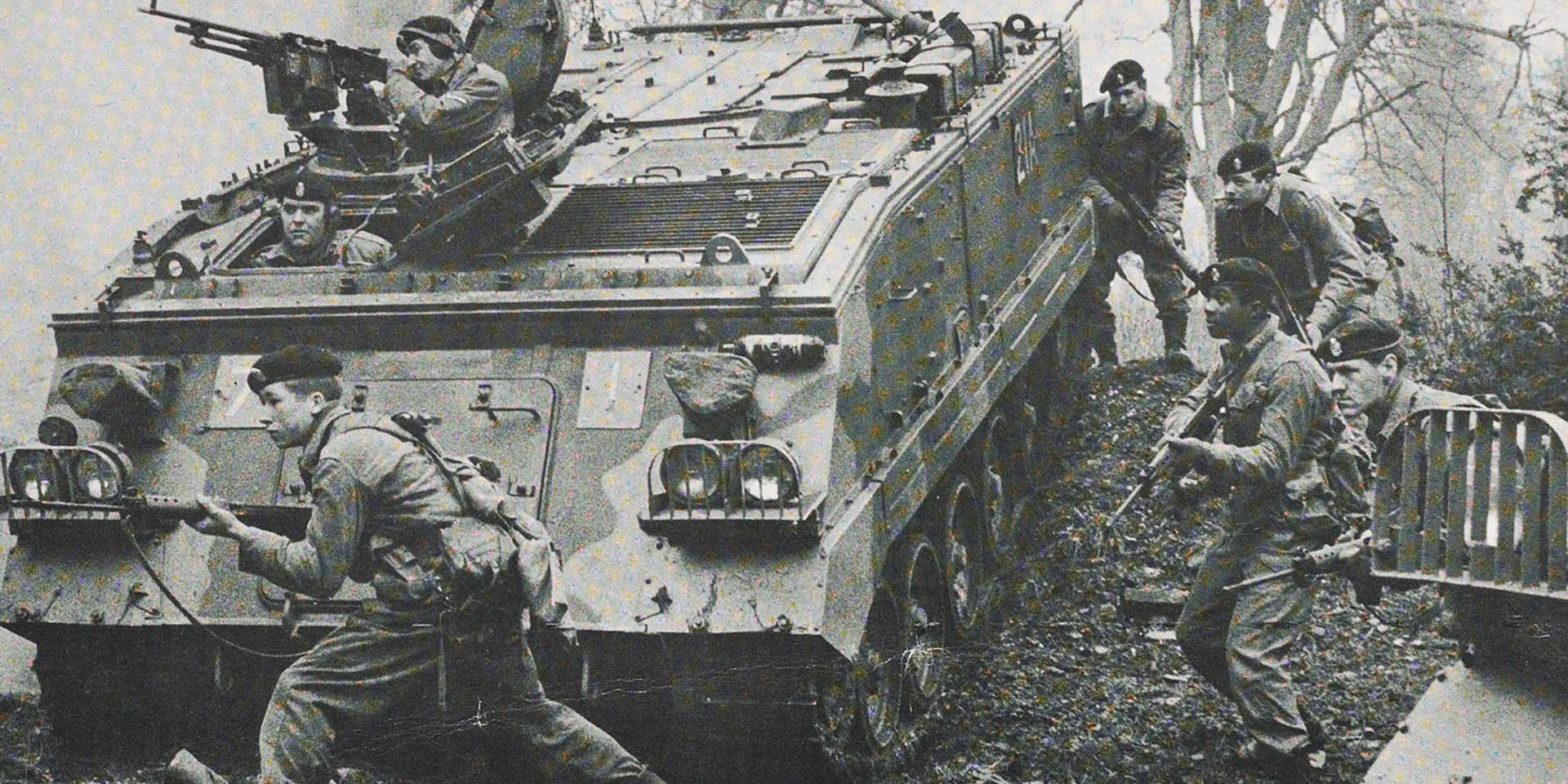
Origins
The Queen’s Regiment was a ‘Large Regiment’ formed in 1966 from the Home Counties Brigade and based in Canterbury. Each of its regular battalions was identified with one of its four predecessor regiments, although this identification only lasted until 1968.
The 1st Battalion came from The Queen’s Royal Surrey Regiment, the 2nd from The Queen’s Own Buffs, The Royal Kent Regiment, the 3rd from The Royal Sussex Regiment and the 4th from The Middlesex Regiment (Duke of Cambridge's Own). Four more volunteer battalions were added to the regiment between 1967 and 1988.
Other ranks' beret badge, The Queen's Regiment, c1973
Deployments
During the late 1960s and 1970s, its battalions were regularly deployed to West Germany (with the British Army of the Rhine), Hong Kong, Gibraltar, Belize, Cyprus (with United Nations peacekeepers) and Northern Ireland as ‘the Troubles’ intensified. 4th Battalion was disbanded in 1973 as part of wider Army reforms.
The 1980s saw further tours to Northern Ireland and West Germany, as well as deployments to the Falkland Islands in 1991.
Legacy
In 1992, the remaining three regular battalions were amalgamated with The Royal Hampshire Regiment to form The Princess of Wales’s Royal Regiment (Queen’s and Royal Hampshires).
Recruiting poster for The Queen's Regiment, c1975
Regimental museums
The National Army Museum works with a network of Regimental and Corps Museums across the UK to help preserve and share the history and traditions of the Army and its soldiers.
Discover more about The Queen's Regiment by visiting the Princess of Wales’s Royal Regiment Museum at Dover Castle.

